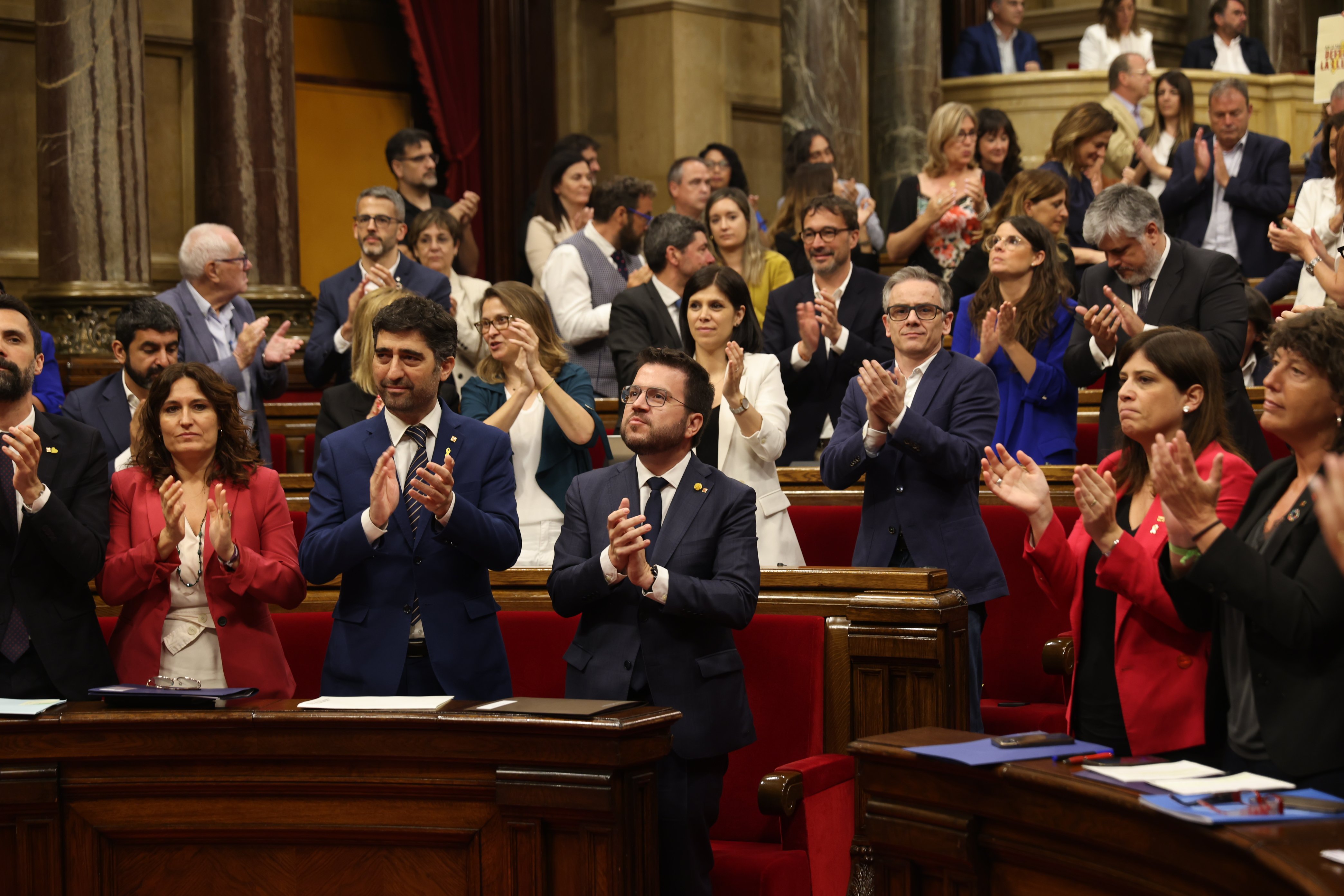The new law on language use in Catalan schools agreed by the PSC, ERC, Junts and the Comuns has finally been passed. After two months of misunderstandings, disagreements, and accusations, as well as a blockade by the Spanish right, the consensus reached has finally borne fruit and Parliament has given its approval to the new law on "the use and learning of official languages in non-university education", the text agreed on by the four parliamentary groups - the same ones, and the only ones, that voted in favour - to combat the ìmposition by the Catalan High Court of its ruling for a 25% Spanish language quota: the text received 102 votes in favour, 29 votes against and one abstention. Now, as soon as it is published in the Catalan Parliament's official gazette, a new regulatory framework will be in force, stating that the use of languages must be decided in accordance with the language project set down by each school centre. There are no quotas or percentages, and the new law establishes Catalan as the language "normally used as vehicular" and Spanish as the "curricular language".
This is the text agreed by the four parties in Parliament, after failing to reach an agreement on the first proposal made in March, which was couched as a reform of the existing Language Policy Act. The main difference with respect to that initial agreement, from which Junts withdrew, is that under the law finally passed, the use of languages in schools "should be determined exclusively by pedagogical criteria and in a unique way for each school", and the law also designates Catalan as the language of reception for new students, an aspect that had been eliminated in the text of the language policy law reform.
The passing of this law, in which one Junts MP, Francesc Ten, abstained as a show of support for activist Salvador Ribot who is on hunger strike in defence of the Catalan language, arrives after days of uncertainty in the Catalan chamber. As soon as the bill passed its first reading in Parliament, the three Spanish nationalist parties, Vox, Ciudadanos and the PP, decided to refer the text to the Council of Statutory Guarantees (CGE), which after a week, issued a report endorsing the new legislation and stating that, contrary to what the three right-wing parties had asserted, it does not contradict either the Catalan Statute or the Spanish Constitution. In fact, the report of the statutory body considers that the new law establishes "a wider use of Spanish in the education system compared to the existing laws of education and language policy. Therefore, according to the CGE, the fact that it declares Spanish to be for "curricular and educational use" implies that this language is not excluded from the education system, and this recognition "obviously goes beyond its use only in the teaching of the language itself".
This law, according to the two governing parties, will serve to combat the judicial imposition, although the PSC, which also participated in the legislative process, interprets the new measure as enabling "better compliance" with the court rulings. Indeed, the nuances put on the text vary across the four political groups that voted for it; while for some the new law makes it clear that Catalan is the vehicular language, the PSC defends that giving the category of "curricular" to Spanish, also gives it vehicular status. In any case, the law has been passed, and according to Junts and ERC, it will now have to be complemented with the final approval of the Catalan government decree, which also rejects language percentages and attributes final responsibility for school educational projects to the Catalan ministry of education. This decree has already entered into force but must be confirmed by a vote in Parliament, a process which is now held up because, once again, the three right-wing parties have taken it to the Council of Statutory Guarantees, which has yet to issue a new report.
Aragonès
In the debate on the law, which lasted almost two hours, the Catalan president, Pere Aragonès, thanked all the parliamentary groups that had participated in the consensus for their "responsibility". He affirmed that the consensus reached represents a Catalan national agreement that is "open" and he urged adhesion to the consensus group by those who have not yet joined, such as the CUP, which has at all times called for the withdrawal of the law. "We do not shrink from the responsibility of legislating for fundamental issues in this country," said Aragonès, who assured that the law situates Catalan as the backbone of the Catalan school system "in the face of risks and threats" and protests the education system from partisan manipulation.

